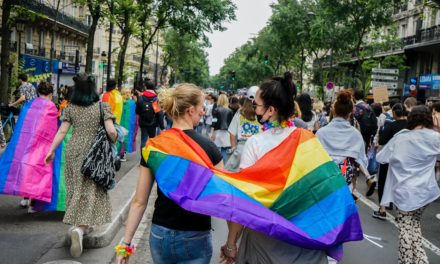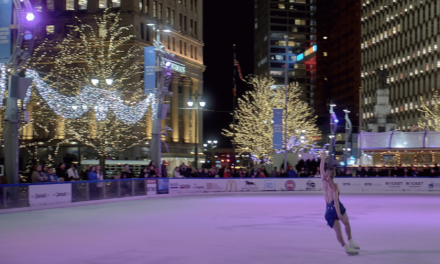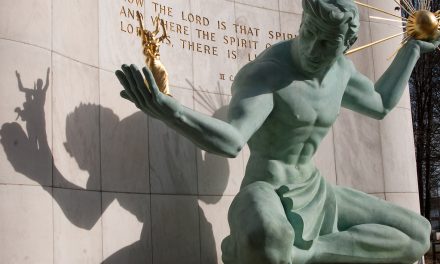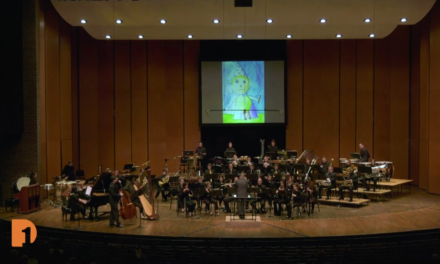Detroit’s flagship world music festival, Concert of Colors, returns this year with a prominent performance from an orchestra that got its start in the region, the National Arab Orchestra. While the orchestra is now well-known across the globe, its roots trace back to Southeast Michigan, and more specifically the University of Michigan.
Founded by Michael Ibrahim in 2009 as the Michigan Arab Orchestra at first, the National Arab Orchestra has risen to national prominence and accolade for its investments to preserve and integrate Arab culture into mainstream society through music education and performances. The orchestra will perform from 6:30-8 p.m. Thursday, July 20 at Orchestra Hall.
Concert of Colors takes place at various arts and cultural venues across Detroit, including the Detroit Institute of Arts, the Detroit Historical Museum, and the Charles H. Wright Museum of African American History. The festival spans multiple days, July 19-23 this year, with a diverse array of concerts, workshops, educational programming, food vendors and more.
Ahead of the orchestra’s performance, One Detroit contributor Cecelia Sharpe of 90.9 WRCJ sat down with Ibrahim, who also served as the orchestra’s music director, to talk about their second Concert of Colors performance and the importance of uniting communities through global music.
Full Transcript:
Cecelia Sharpe, Host, 90.9 WRCJ: Michael, you are a musician, composer, educator, Kresge fellow, and founder of the National Arab Orchestra. Thank you so much for coming and taking time out of your busy schedule to talk to me today.
Michael Ibrahim, Founder and Music Director, National Arab Orchestra: Thank you. Wonderful to be here.
Cecelia Sharpe: Before we jump into the concert of colors, you started off playing the Oud. How did your musical adventure unfold?
Michael Ibrahim: When I was a kid, my parents would take us to church. We grew up Greek Orthodox. I would just remember listening to my grandfather chant. He was the priest at the church down in Berkeley, Michigan. I just remember those sounds really sticking in my ear. So I got fascinated into those sounds and my dad had an oud at the house. He couldn’t play. He just kind of strummed on the instrument.
But I got really fascinated with it. And it wasn’t until after my last trip to Syria in the nineties, and I just came back, and I really wanted to learn. So they got me an oud and I started taking lessons with the local cat in town. And from there, it’s just been this cultural journey of discovery.
Cecelia Sharpe: You’ve committed to it ever since.
Michael Ibrahim: Yeah, I mean, I kind of got away from it.
Cecelia Sharpe: Did you? What did do you?
Michael Ibrahim: Well, when I got to high school, they asked me what I wanted to do, and I was like, can I play Oud in the orchestra? They’re like, no, but here’s the saxophone. So I got into Western music and then I went to school with the intent of getting a music education degree. So when I got my undergrad, that’s when I really started to have this cultural reawakening, and I started to express that through our music.
Cecelia Sharpe: You founded the National Arab Orchestra in 2009. What prompted that?
Michael Ibrahim: I got a call from somebody at the University of Michigan (U of M), Allison Jones, and she wanted to restart an ensemble that was there, and I was a part of it. It kind of went on hiatus for about a year or a year and a half, and she asked me to take it over.
So we started from scratch. We held auditions. We got in students. So this whole thing started as a student group at U of M. It wasn’t until the second concert I did the following year, and I saw how excited community members from the Arab American community were. That’s when I took it upon myself.
I borrowed money from my dad and started the nonprofit. From there I started to get board members. Then we started the National Arab Orchestra (NAO). We now started off as the Michigan Arab Orchestra, and in 2014, we changed to the National Arab Orchestra.
Cecelia Sharpe: Since you started the orchestra in 2009, you added an ensemble, The Takht Ensemble. You’ve added school programming. You really seek to introduce Arab culture to audiences through music. What do you hope that audiences learn from their experience?
Michael Ibrahim: I hope that Arab American kids will be able to use this platform as a way for them to get in touch with their culture, kind of like how I did. For the non-Arabs, we hope to create opportunities for people to understand the culture better. Because what people hear on the news is one thing and what the reality of a culture is is another.
Cecelia Sharpe: I remember I met you at Detroit School of Arts and you did a residency with the orchestra students there. They were kind of taken aback by the idea of playing non-Western music on their instruments.
Michael Ibrahim: It’s always a joy to do programs like that with students because you could see the transformation that takes place and it’s always the same cycle of events. Whenever I first walk into a new school, they’re like, what’s going on? And then once they get used to me and they get comfortable then they start working on the music. Then they learn more about the culture.
Then when they get to the performance, they’re ready and they’re excited because they know they’re going to be singing with a thirty-piece orchestra. Then afterward they just feel really good. The more we do programs like this, the more we see how much the arts can impact, especially in the realm of education and in bringing people together.
Cecelia Sharpe: You’re preparing for the upcoming Concert of Colors. Why is it so important for the National Arab Orchestra to be a part of this upcoming Concert of Colors?
Michael Ibrahim: Well, Concert of Colors is a world music festival, and the NAO is one of the leading figures of world arts in Detroit. It’s an institution that not only performs in Michigan, but it goes all over the country. The fact that we get to represent Arab culture in that form is important.
We’re also really really excited to be working and partnering again with the Detroit Symphony Orchestra to put this on. And I’m really excited about this particular program because we’re bringing an amazing jazz legend, Yehya Khalil. He was credited with actually bringing jazz to Egypt. The Arab world so diverse and there’s so much different beauty depending on the region you’re in. So there’s a lot to cover there.
Stay Connected:
Subscribe to One Detroit’s YouTube Channel & Don’t miss One Detroit Mondays and Thursdays at 7:30 p.m. on Detroit Public TV, WTVS-Channel 56.
Catch the daily conversations on our website, Facebook, Twitter @DPTVOneDetroit, and Instagram @One.Detroit
View Past Episodes >
Watch One Detroit every Monday and Thursday at 7:30 p.m. ET on Detroit Public TV on Detroit Public TV, WTVS-Channel 56.




